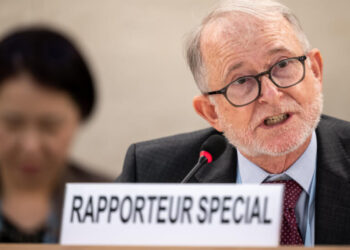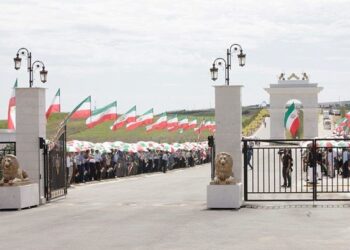Human Lives Human Rights: In this series of articles, our aim is to analyze the legal cases involving Iran that have been presented at the International Court of Justice, commonly referred to as The Hague. After providing a concise overview of Iran’s significant cases in this court, we will delve into a comprehensive examination of Iran’s most recent case at The Hague Court of Justice.
The International Court of Justice, the primary judicial organ of the United Nations, traces its origins back to the Permanent Court of International Justice. Established in April 1946 at the Peace Palace in The Hague, Netherlands, the International Court of Justice operates under the same constitution as its predecessor, the Permanent Court of International Justice.
The Hague Tribunal consists of 15 judges who are appointed based on the official nominations put forth by the national groups of the Permanent Court of Arbitration. These judges are elected for a term of 9 years by the General Assembly and the Security Council, taking into consideration geographical representation.
The judges selected for these positions are individuals who possess the highest moral standing and possess the necessary qualifications to hold esteemed judicial positions in their respective countries. They may also be renowned figures in the field of international law. It is important to note that personal reputation alone is not sufficient for the selection of judges. They must also be capable of representing significant civilizations and important legal systems from around the world.
It is worth mentioning that the composition of the court ensures that there is no more than one judge from each country. The Hague Court has rendered 89 judgments and provided 25 advisory opinions to date. The first case heard by this court was the dispute between Albania and England in May 1947.
Nationalization of oil
Following the approval of the nationalization of oil in Iran by the Council and Senate parliaments in early May 1951, Iran lodged a complaint with the Hague Court, citing the friendship treaty of 1933 between Iran and England.
Shortly thereafter, Dr. Mossadegh led a delegation to The Hague and attended the hearing on June 9. During the hearing, he expressed the sentiment that Iranians hold a stronger concern than other nations regarding the prevention of any actions that could be seen as interference in their national jurisdiction.
This nation has become a battleground for colonial policies, and it is disheartening to acknowledge that despite the aspirations and expectations, the international community and the United Nations have been unable to bring an end to this unfortunate situation. The former Iran-UK oil company has been a prominent example of this distressing state of affairs over the past 50 years.
The Iranian people, weary of the ongoing situation, bravely brought an end to foreign rule through a courageous movement that involved the nationalization of the oil industry and acceptance of one-time compensation payments. In response, the British government resorted to a series of threats and intimidation tactics. This included deploying paratroopers near Iran’s borders and positioning warships in its coastal waters.
Subsequently, the British government initiated an economic blockade and sought to achieve its objectives through economic pressure, including seizing Iran’s currencies held in England. Within Iran, it orchestrated a conspiracy against the government and the national movement, utilizing its agents and supporters. Furthermore, it encouraged acts of sabotage in economic and financial matters.
The British government engaged in a campaign of propaganda abroad, aiming to tarnish Iran’s reputation in other countries and international forums. However, as these malicious activities failed to yield any desired outcomes, they resorted to adopting a victimized stance and lodged complaints with United Nations bodies such as the International Court of Justice and the Security Council.
After a series of twelve sessions, the court reached a decision on June 24. The court’s ruling stated that it lacked jurisdiction to address the complaint filed by the British government and deemed it unnecessary to delve into other matters falling under the court’s jurisdiction.
On July 5th, 1951, the court issued an order stating that Tamineh Masrah’s actions were temporarily suspended until the final decision of the court. With the court’s decision now issued, it is evident that the aforementioned temporary order is no longer valid and will not have any impact on it.


















